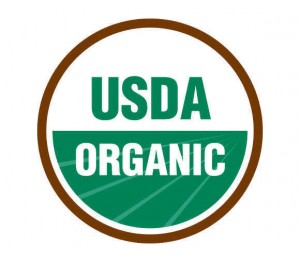Food Matters: The Response to that Post Article about the National Organic Program

Nearly two years ago I started OrganicMania because I was going crazy trying to figure out when it made sense to go green and organic.
Once I finally understood the food labeling systems (USDA Organic, Made with Organic Ingredients, Green, Natural, etc), I felt a bit more sane.
But as I blogged here last week, the news that Organic Standards may not be all that they seem has turned my world upside down again. Two years later, and I’m still being driven crazy trying to sort out green and organic claims!
The Washington Post ‘s coverage of the controversy surrounding the National Organic Program touched off interesting reactions from organics advocates and observers. I was barely digesting that story and the reaction to it when Whole Foods announced they’ve joined the non-GMO project, and Dean Foods announced a move toward “natural” milk – two developments that will throw yet another wrinkle into the food shopping game. I don’t typically do news summaries here at OrganicMania, but I think these developments are so significant that they merit a recap.
So this is News? Samuel Fromartz, author of “Organic, Inc,” blogged that “The tension discussed in the [Post] article, between those who have always sought to expand the industry and those who seek a more purist vision…. wasn’t particularly news…As for synthetics in processed food, there will always be two camps on this — and both present risks. If synthetics are taken out ..organic processed foods would fade off the shelves. Maybe that’s not a bad thing, but the organic industry would be a lot smaller. If, on the other hand, too many synthetics are let in, and we start getting more organic junk food with a long list of unpronounceable ingredients, that will spell the end of organics too.”
It’s So Unfair! The Organic Trade Association issued this press release taking issue with the criticisms aired by The Washington Post reporters. I wish I had seen more reaction from organics advocates, but this was the best response I could find after much online searching, so I’ve included the key points below.
o “The federal organic standards have not been ’relaxed.’ Rigorously enforced standards can and do go hand-in-hand with growth… Organic agriculture and products remain the most strictly regulated, as well as the fastest growing, food system in the United States today.”
o “Organic agriculture protects the health of people and the environment by reducing the overall exposure to toxic chemicals from synthetic pesticides that can end up in the ground, air, water and food supply, and that are associated with health consequences from asthma to cancer. Extensive pesticide residue testing by the U.S.D.A. has found that conventionally produced fruits and vegetables are, on average, three to more than four times more likely to contain residues than organic produce, eight to eleven times more likely to contain multiple pesticide residues, and contain residues at levels three to ten times higher than corresponding residues in organic samples.”
o “..There is a very specific process that materials must go through before they are permitted for inclusion in organic products. In regards to fatty acids, the USDA regulators followed the recommendation of the National Organic Standards Board (NOSB)… Because the position of the reporters’ sources did not ‘carry the day’ in this public review by no means makes the process illegal, and to characterize it as such is a great disservice to the public.”
Also last week, Whole Foods announced it will begin certifying certain of its private label 365 brand foods through the Non-GMO Project. I believe this will be the first major non-GMO labeling effort of its kind – something we should all support. But I predict that Whole Foods’ move will drive more consumers away from organics and toward the new non-GMO label, since many people buy organics primarily to avoid GMOs.
Perhaps USDA Organic is not the “be all and end all” that its most ardent supporters claim. But it’s one of the best indicators we have of quality food, particularly in the supermarket. As consumers, we need to continue to push for strong organics standards, meaning no relaxation of the current USDA Organic standard. Check out this campaign promoted by Terressentials Organics to solicit consumer support for upholding organic standards. You have until August 31st to have your voice heard by the National Organics Program.
My bet is that the continued expansion of organics, the growth in the natural foods and green categories and the new non-GMO label will continue to make food shopping a challenge – meaning I’ll still be going crazy! (At least it will give me plenty to blog about here at OrganicMania!)
Check out the other wonderful posts in this month’s Green Moms Carnival, hosted by Alline at A Passion for Green Business.
What do you think? Are you still going crazy trying to sort this all out? Leave a comment and share!
— Lynn
Copyright OrganicMania 2009
Filed under Food, GMOS, Organics, Organics vs. Conventional Foods | Wordpress Comments (9) | My StumbleUpon Page
My StumbleUpon Page



